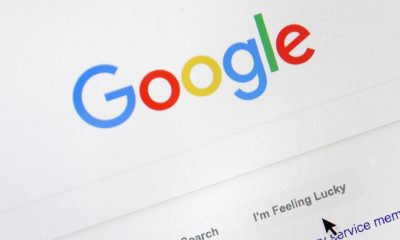SOCIAL MEDIA NEWS
Makan Delrahim speech lays groundwork for antitrust versus big tech
[ad_1]
U.S. Assistant Attorney General for Antitrust Makan Delrahim testifies before the Senate Judiciary Committee during an oversight hearing on the enforcement of antitrust laws in the Dirksen Senate Office Building on Capitol Hill October 03, 2018 in Washington, DC.
Chip Somodevilla | Getty Images
The Department of Justice’s assistant attorney general brought the case against big tech into focus in a new speech delivered at the Antitrust New Frontiers Conference in Tel Aviv on Tuesday.
Makan Delrahim laid out some possible arguments against the tech giants as his office is reportedly taking the lead on investigating Google parent company Alphabet and a potential probe into Apple. The Federal Trade Commission, meanwhile, reportedly has taken jurisdiction over Facebook and Amazon.
Shares of these companies dropped on last week’s reports that U.S. antitrust officials were beginning to take action on long-anticipated investigations. But the case against the companies has remained unclear as some tech advocates have argued that old school antitrust laws don’t have a place in the digital economy.
Delrahim’s speech, as transcribed on the DOJ’s website, argues existing antitrust laws are strong enough to regulate tech.
“We already have in our possession the tools we need to enforce the antitrust laws in cases involving digital technologies,” Delrahim said. “U.S. antitrust law is flexible enough to be applied to markets old and new.”
Google declined to comment on the speech. Apple, Facebook and Amazon did not immediately respond to requests for comment.
Here are some of the possible arguments antitrust regulators could use against Big Tech based on Delrahim’s speech:
The ‘no economic sense test’
One way of evaluating whether a company has violated antitrust law is through what Delrahim called the “no economic sense test.” A monopoly that makes a decision that makes no economic sense except for “its tendancy to eliminate or lessen competition” would fail the test, according to Delrahim’s definition.
“But even if a company achieves monopoly position through legitimate means, it cannot take actions that do not advance plausible business goals but rather are designed to make it harder for competitors to catch up,” he said.
This test suggests antitrust regulators may look into tech companies’ acquisitions and decisions around product development to evaluate whether they made business sense or simply hindered or squashed competition.
Consumer prices aren’t paramount
Jeff Bezos speaks onstage at WIRED25 Summit: WIRED Celebrates 25th Anniversary With Tech Icons Of The Past & Future on October 15, 2018 in San Francisco, California.
Matt Winkelmeyer | Getty Images
For those who believe current antitrust laws can’t stand up to big tech, a key argument states that antitrust is based around the concept of consumer harm. When it comes to modern tech companies, many actually offer consumers substantially lower prices than they would find otherwise (in Amazon’s case) or don’t charge consumers for their services at all (as in the case of Google and Facebook). If price inflation is a chief concern for antitrust law, then it’s hard to make the case that consumers are harmed by tech’s low prices.
But Delrahim takes a different perspective.
“The Antitrust Division does not take a myopic view of competition,” he said. “Many recent calls for antitrust reform, or more radical change, are premised on the incorrect notion that antitrust policy is only concerned with keeping prices low. It is well-settled, however, that competition has price and non-price dimensions.”
In addition to price inflation, “diminished quality is also a type of harm to competition,” Delrahim said. “As an example, privacy can be an important dimension of quality. By protecting competition, we can have an impact on privacy and data protection.”
Similar to how competing companies can drive down each others’ prices, competition can also encourage companies to include quality elements such as privacy features. This concept could become particularly important for companies like Facebook and Google, which don’t charge consumers for their services but collect vasts amount of data about them. Apple, on the other hand, has tried to preempt this approach by emphasizing consumer privacy in its products.
Delrahim said the concept regulating companies outside of price competition would not be a new approach. During the peak of Standard Oil’s dominance, he said, consumers saw lower prices.
“This was likely due to, among other things, a combination of economies of scale, superior bargaining power, and overall declining input prices,” he said. “It nonetheless demonstrates that price effects are not the sole measure of harm to competition under the U.S. antitrust laws.”
Exclusivity
Delrhaim said exclusivity is another important way to evaluate anti-competitive behavior.
“Generally speaking, an exclusivity agreement is an agreement in which a firm requires its customers to buy exclusively from it, or its suppliers to sell exclusively to it. There are variations of this restraint, such as requirements contracts or volume discounts,” he said.
While exclusivity is not inherently anti-competitive, according to Delrahim, there are cases where a company may use exclusivity “to prevent entry or diminish the ability of rivals to achieve necessary scale, thereby substantially foreclosing competition.”
He referenced the antitrust case against Microsoft, which focused in part on the company’s inclusion of its web browser in its Windows operating system, which he said discouraged users from uninstalling it and seeking alternatives.
“This theory is broadly applicable to other technology markets,” Delrahim said.
Apple has faced criticism and legal action for its rules around its App Store, which comes preinstalled on iPhones and provides specific rules to developers who wish to distribute their apps through the system. The Supreme Court recently ruled that consumers have standing to sue the company in a case arguing its commission on app sales has inflated prices for the software.
Effects on innovation
Mark Zuckerberg, chief executive officer and founder of Facebook
Andrew Harrer | Bloomberg | Getty Images
Anticompetitive behavior can also stifle innovation, according to Delrahim. He described how acquisitions of young competitors could be considered anticompetitive.
“They can be beneficial to the extent they combine complementary technologies or bring products and services to market that would not have been made available to consumers otherwise,” Delrahim said.
“It is not possible to describe here each way that a transaction may harm competition in a digital market, but I will note the potential for mischief if the purpose and effect of an acquisition is to block potential competitors, protect a monopoly, or otherwise harm competition by reducing consumer choice, increasing prices, diminishing or slowing innovation, or reducing quality. Such circumstances may raise the Antitrust Division’s suspicions.”
Facebook notably raised antitrust concerns when it announced plans to buy another social networking platform, Instagram, and later, WhatsApp. At the time that Facebook announced the Instagram deal in 2012, Social Internet Fund Founder Lou Kerner told the Associated Press the $1 billion price tag on the young company was “astronomical.” But even at the time, he recognized the deal kept Instagram “out of the hand of competitors.”
Today, $1 billion seems like a steal for Facebook, which analysts have estimated is now worth about $100 billion, according to Bloomberg. Instagram is the most popular social network among teens, according to a Piper Jaffray survey. Facebook also likely benefits from the fact that most Americans don’t know it owns Instagram, according to a recent survey by DuckDuckGo.
The rise of a handful of tech giants also prevents smaller firms, like a young Instagram, from having ample leverage in acquisitions, Delrahim noted.
“Interestingly, independent companies complained that the commitment prevented them from selling out on advantageous terms with AT&T, ” Delrahim said, referencing the historical antitrust case. “Indeed, this complaint is evocative of start-ups for whom a popular exit strategy is acquisition by a large firm in the same or an adjacent market.”
Coordination
Delrahim said the Antitrust Division could look into “coordinated conduct that creates or enhances market power.” He referenced Yahoo and Google’s 2008 advertising agreement, which would have allowed Yahoo to “replace a significant portion of its own internet search advertisements with advertisements sold by Google.”
The division found the agreement “would have harmed the markets for internet search advertising and internet search syndication where the companies accounted for over 90 percent of each market, respectively.” The companies abandoned the plan when the division said it would file suit.
Subscribe to CNBC on YouTube.
WATCH: Antitrust issues front and center at the Code Conference
[ad_2]
Source link













